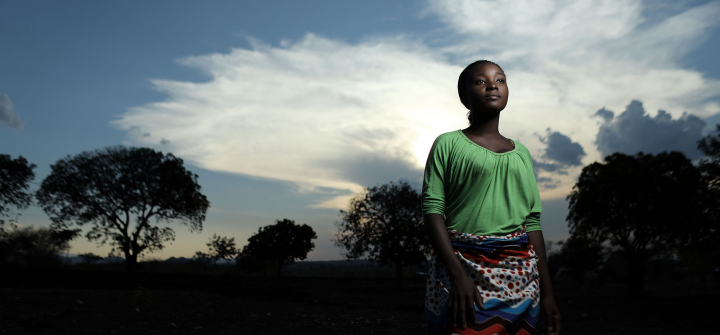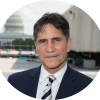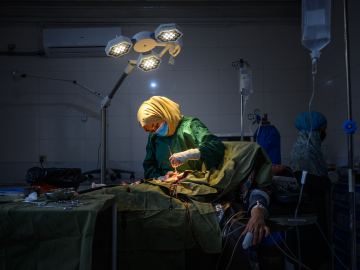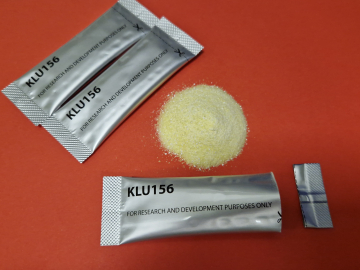Learning Our Lessons: What’s Missing from Pandemic Preparedness
In the aftermath of COVID-19, there have been many proposals to address future health threats. Countries are negotiating a Pandemic Accord. The World Bank established a multilateral financing mechanism, the Pandemic Fund, to help countries build capacity. But, in our race to find new solutions, we shouldn’t overlook those that already exist.
To successfully combat future outbreaks, nations will need to utilize the expertise and infrastructure of the President’s Emergency Plan for AIDS Relief (PEPFAR) and the Global Fund —which have fought pandemics for decades. At the upcoming UN High-Level Meeting on Pandemic Preparedness, we have an opportunity to build on the lessons learned from these 2 organizations. We would be negligent not to do so.
Leveraging Existing Infrastructure
In 2002, the Global Fund was created to accelerate progress against AIDS, Tuberculosis and Malaria. The following year, the U.S. launched PEPFAR, the largest commitment by any nation to address a single disease. Together, they have saved millions of lives, helped stabilize and grow national economies through health infrastructure investments, and changed the course of multiple diseases.
The 2 organizations collaborate on strategies in over 50 countries, leveraging one another’s resources and expertise, and sharing data to maximize impact. Effective pandemic preparedness requires this type of harmonization, as well as the long-term commitment, accountability, and whole-of-society approach that is baked into both Global Fund and PEPFAR operations.
The infrastructure built by these institutions has been leveraged to address other health crises. For example, at the height of COVID-19, PEPFAR funded surveillance, and its case-finding systems tracked the virus, identified mutations, provided critical laboratory and supply chain capacity, and helped countries prepare for vaccine delivery. It also deployed medical personnel and commodities and leveraged its expertise in rapidly coordinating with governments and others to aid COVID responses.
We don’t need to recreate the wheel to prepare for future pandemics. We already have effective tools at our disposal that should be part of planning and investment.
Supporting Holistic, Resilient Health Systems
When a threat strikes, countries rely on the health systems they have in place. PEPFAR and the Global Fund each invest roughly $1.5 billion in these systems annually, committing substantial resources essential for preparedness.
Communities and civil society are at the center of any effective health system. Both PEPFAR and the Global Fund offer effective models for such engagement. PEPFAR’s Country Operating Plans brings together governments, civil society, global, and local implementing partners to plan and budget activities for the coming year. The Global Fund similarly collaborates through its Country Coordinating Mechanisms.
Reaching all people
To ensure no one is left behind, effective pandemic responses must reach people in the unique contexts in which they live. Structural inequalities, stigma, and failure to respect human rights make ending pandemics much harder. These issues exacerbate the vulnerabilities of already marginalized communities, such as women and girls, LGBTQ people, sex workers, people who inject drugs, and migrants. We saw this during COVID-19, when these and other communities were disproportionally impacted.
History shows that, when a new disease strikes, we need social protections as well as biomedical tools. Knowing this, the Global Fund requires that countries address human rights barriers in its proposals, and provides funding for 20 countries to scale up programming to do the same. PEPFAR’s DREAMS (Determined, Resilient, Empowered, AIDS-free, Mentored, and Safe) partnership pairs social protection with biomedical interventions to address factors that make young women especially vulnerable to HIV, such as gender-based violence and limited educational and economic opportunities. Current pandemic preparedness efforts can learn from these models.
These lessons are too often forgotten during pandemic preparedness dialogues. At September’s High-Level Meeting, we need to bring them to the forefront. This means calling for investment in existing infrastructure to fight future pandemics and assuring the core values of equity, universal access, and human rights are at the center of pandemic preparedness.
Chris Collins is president and CEO of Friends of the Global Fight.
Elisha Dunn-Georgiou is president and executive director of Global Health Council.
Join the 50,000+ subscribers in 170+ countries who rely on Global Health NOW summaries and exclusive articles for the latest public health news. Sign up for our free weekday newsletter, and please share the link with friends and colleagues.
https://www.globalhealthnow.org/subscribe
Maggie Medison, 18, joined PEPFAR’s DREAMS program in Malawi; she is now is a peer educator, working with girls in her community to raise awareness about the importance of staying in school and protection against HIV. Nov. 14, 2017. Image: Josh Estey, USAID/Creative Commons license via Flickr






